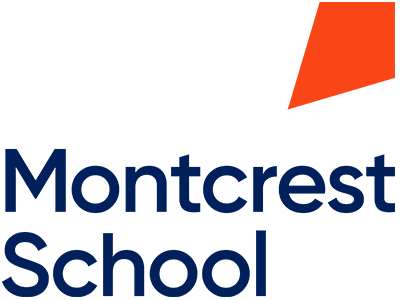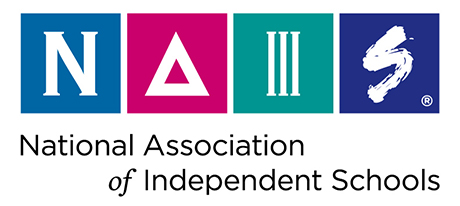Applying to an Independent or Private School
Applying to an Independent or Private School
Factors to Consider Before Applying
“All parents want the best for their children. That’s certainly true when it comes to their children’s education. However, good intentions sometimes lead to decisions or actions that negatively impact a child’s learning. I will share with you the five most common mistakes parents make when it comes to their children’s education.” Bryan Ide is Education Director, Principal of KEY Enrichment Centre
The Our Kids magazine suggests that parents should avoid the following “Five Common Mistakes Parents Make” when applying to a private or independent school.
Secondly, if your child has specific learning needs there is an excellent comparison tool that allows you to filter schools based on their special needs support. Simply click on the corresponding colour to the type of special needs you are looking for. However, this will only identify what types of special needs schools support, not to what degree they support the child. Therefore, parents should read more about “How do special needs schools support students?”.
Thirdly, if it is important that a school provides enrichment or support for giftedness, you might find the following comparison of gifted programming helpful before applying to any school.
It’s important for any school to have the most accurate, up-to-date information about your child and how they learn. As such, if your child’s Educational Assessment will be three or more years old in their coming Grade 8 year, we recommend starting the process to get an updated assessment over the summer. When applying, it is essential that you provide the school with a copy of your child’s most recent assessment and their complete IEP; this way, the admissions departments will be able to determine whether they are equipped to provide your child with the support they will need to thrive.
Applying
Every private or independent school has its own application and admissions process; however, most will follow a similar process. This will involve a school tour or visit, an interview, and an entrance test, along with the application documentation. The type of documentation required will include an application form, a non-refundable application fee, a confidential school report from Montcrest faculty, and previous report cards (Grade 7 June report card, Grade 8 progress report & Grade 8 January report card). Some schools may also require test scores (depending on the school, it may be necessary for your child to write the SSAT or some other entrance requirements).
-
- The confidential school report can be completed by any of your child’s regular academic teachers. As a parent, you will want to select a teacher who knows your child well and has taught your child within the last year. These reports, once completed, are mailed directly to the school that you will be applying to.
- The previous report cards are requested so a school can look at your child’s academic growth and character development over a period of time. Schools will review your child’s academic achievement, their learning habits, and their involvement within the school community along with any awards, and finally they look at a child’s attendance record, including the number of late arrivals.
- The entrance exam is used as an independent assessment to compare all applicants. These can include assessments of math, reading comprehension skills, and an independent writing exercise. The writing exercise has two purposes: it is intended to give the applicant an opportunity to express themselves thoughtfully and creatively. The writing sample is not graded. Some schools have developed their own entrance exam, while others use the Secondary School Assessment Test (SSAT). Some families choose to enrol in an SSAT preparation course to ensure their child understands the SSAT format, while others purchase one of several SSAT prep books from a bookstore. The following is a list of schools that require the SSAT as part of their application process.
- Many schools are now also requiring that applicants complete the SSAT Character Skills Snapshot, which measures student’s preferences towards seven character skills: intellectual engagement, teamwork, initiative, resilience, self control, open-mindedness, and social awareness. This is a short online task that does not require preparation.
- The interview is one of the most important parts of the application process, but its main purpose is simply seeking to provide a clearer view, beyond the paper application, of whether or not your child is a good fit for the school and vice versa. Here is a sample of the types of questions students get asked at private school interviews. The interview is another opportunity to decide whether the school is a good fit for your family values, and for the school to determine whether your values are a good fit for the school community. Therefore, it is important to understand the role of parents in this process. The Our Kids magazine suggests the following questions to pose to private schools to help you determine if the school you are applying to is a good fit for you and your child.
Montcrest will prepare students for school interviews by conducting a mock interview. These interviews should be booked through Emma Stewart (estewart@montcrest.ca). These should take place about 1-2 weeks prior to a student’s first interview.
The Waiting Game
The longest period during the admissions process is waiting for the communal offer date in February. Although parents might want to contact the school to find out where their child’s application is in the process, we strongly advise not to contact the school. Parents may believe this will highlight or help their child’s application; however, it can often have the opposite effect. If an admissions department determines that a parent is being overly demanding, they will often make the assessment that a parent may be a ‘high needs parent’ or a ‘helicopter parent’ if they become a part of the school community. Likewise, if families have personal contacts at the school, whether it be a teacher, administrator, or family, it is equally advised not to ask for excessive influence from these contacts as this can have a similar effect to calling.
Many admissions departments operate independently from other parts of the school in order to ensure objectivity throughout the admissions process. Therefore, attempting to influence this process can have a negative consequence. Please remain patient and allow the strength of your family’s application to be the basis for the school’s decision.
Finally, if you have any questions or have heard information that requires clarification, please contact Mr. Barry or Ms. Klein. They understand the admissions process and departments at each school very well and are best suited to address your concerns rather than listening to any kind of hearsay or rumours.
Decision-Making Process
It is becoming increasingly popular among independent schools to offer special days ahead of the February offer date. Although these special days have been established to provide parents and students an opportunity to experience “A day in the life” of a school, it also gives the schools another opportunity to see how a student might integrate into the school community. These special days might be an evening event or an opportunity for a student to visit and experience classes during a typical school day. When families attend such events, they need to be aware that the admissions departments will often debrief how the day went with both teachers and students. However, it also provides families the opportunity to determine if the school they are applying to is a good fit for their child.
Many independent and private schools attempt to give preference to families if a sibling already attends the school; however, this preference only becomes a factor once it has been decided that a student is the right fit for the school. Furthermore, when families have a legacy at an independent school because a parent or grandparent is an alumnus, this also becomes a factor once the student has passed the admissions process. Therefore, families should not rely on these factors to influence the decision-making process.
Independent and private schools handle the admissions process in two distinct ways:
- The first process is called rolling admissions. This is when the school makes an offer when your child has met all the admission requirements and the application process has been successful. These offers can happen at any point during the year, and some families like knowing sooner rather than waiting to hear.
- The second process is when a group of independent schools have a communal offer date; for example, this year it will be on February 26, 2021. When this is the case, offers are often made before the start of the school day. Families are given five days to make a decision as to whether they will accept or pass on an offer.
All decisions and offers to specialized programs within the TDSB are made by mid-February, or approximately a week before the communal offer date from most independent schools.
Since the communal offer date is a significant one, families should understand the different schools’ acceptance rates (These acceptance rates may not accurately reflect the current rate) for entry years in order to prepare and discuss a variety of different possibilities that could take place on this date.
For example:
What would families do if they receive multiple offers?
- Parents and children should have already ranked the schools that they would prefer to attend. This will simplify the decision-making process and will allow families to accept the offer and provide the initial deposit to hold the child’s spot within the five-day period.
What would families do if they receive a single offer?
- Parents will need to accept the offer and provide the initial deposit to hold the child’s spot within the five-day period.
What would families do if they do not receive an offer and are told they are on a waiting list?
- Parents will need to decide if their child will attend a TDSB high school, attend a school with rolling admissions where they have already been accepted, or contact Montcrest to learn about next steps.
The offer date is a stressful and complex one for both families and schools. It has become common practice by admissions departments to place students on a “waiting list” instead of saying no. This is because schools are waiting on acceptances from families where an offer was made, and often more offers are made than there are spots available. This is due to the fact that not everyone who was made an offer will decide to come to their school. Therefore, it is important that students already know they are already enrolled in a public high school or in a school that has a rolling admissions policy ahead of this communal offer date.
If families have decided to accept an offer from a specialized public school program, private, or independent school, you should then call your local high school and ensure you have unenrolled your child for the next school year.
Once students know where they are going to high school it is critical that they finish the year off strong. The last few months are as important as the first part of the year in preparing students for Grade 9, especially considering that most offers are conditional on students maintaining an acceptable level of conduct throughout the remainder of the school year.
We hope you have found this guide helpful in preparing you for the transition process. If you have any questions, please do not hesitate to contact us.
For further information, please see Additional Resources





